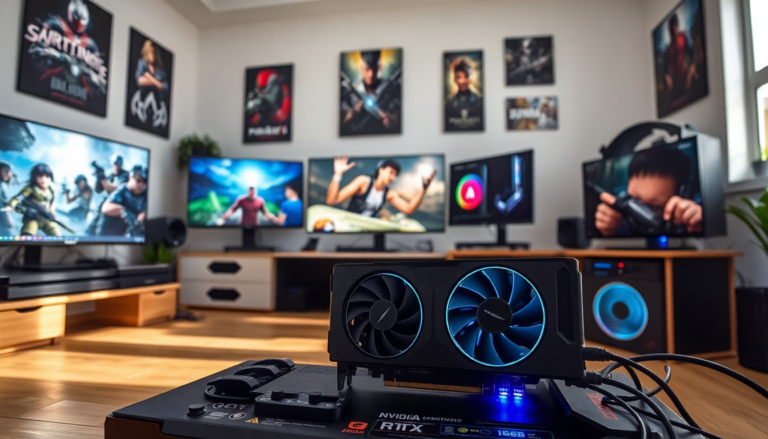Argomenti trattati
The rise of demanding gaming requirements
In the world of gaming, the hardware requirements constantly evolve, pushing the boundaries of what graphics cards can achieve. One of the recent releases, the Nvidia RTX 5060 Ti, comes in two variants: 16GB and 8GB. While the 16GB model has garnered favorable reviews, the 8GB version is facing scrutiny from gamers and reviewers alike due to its limitations in handling modern titles.
As game developers increasingly optimize their titles to utilize advanced hardware capabilities, the demand for higher VRAM has become apparent. Gamers expecting to enjoy the latest games with smooth performance may find that 8GB of VRAM is no longer sufficient, particularly at higher resolutions.
Performance benchmarks reveal the gap
Testing conducted by various publications has highlighted the performance discrepancy between the RTX 5060 Ti 8GB and its 16GB counterpart. In a study involving 27 titles at a resolution of 1440p, the 8GB model averaged 59.4 FPS when connected to a PCIe 5.0 motherboard. However, when tested on a PCIe 4.0 slot, the average FPS dropped to 55.82—demonstrating a noticeable decline in performance.
These numbers might not raise immediate concerns, but a deeper look into the specific titles reveals a worrying trend. Several games experienced a drop of over 5 FPS in both average frame rates and 1% lows, translating to a performance dip of nearly 9% in some instances. This decline could significantly affect the gaming experience, especially for players who prioritize frame rates in fast-paced titles.
Notable performance drops in popular titles
As an illustration of the performance gap, here are some key games tested:
- Assassin’s Creed Shadows: 54.9 FPS (PCIe 5.0) vs. 54.4 FPS (PCIe 4.0)
- Black Myth: Wukong: 60.7 FPS (PCIe 5.0) vs. 50.7 FPS (PCIe 4.0)
- Final Fantasy XVI: 55.4 FPS (PCIe 5.0) vs. 44 FPS (PCIe 4.0)
These examples illustrate the varying degrees of performance impact across different titles, emphasizing that even minor changes in VRAM can lead to significant differences in gameplay quality.
Implications for mainstream gamers
For many gamers, the RTX 5060 Ti 8GB is marketed as a mainstream graphics card, appealing to those looking for a balance between performance and affordability. However, the reality is that users with older motherboard models—often lacking support for PCIe 5.0—might find themselves disappointed with the performance of this GPU.
As the gaming industry continues to advance, the trend of demanding hardware specifications will likely persist. Gamers who invest in an 8GB card may soon discover that their new purchase falls short of expectations, especially if their favorite games are among those impacted by the performance limitations of this GPU.
Why 12GB VRAM is becoming the new standard
Several reviewers and tech experts are advocating for a shift away from graphics cards with 8GB of VRAM, particularly for those serious about gaming. With the increasing demands placed on hardware, it makes sense to consider options with at least 12GB of VRAM, which can better accommodate future titles and updates.
Despite the potential market for the 8GB variant, Nvidia’s decision to produce it may stem from the price-sensitive segment of the gaming community. However, for gamers seeking performance longevity, investing in a card with more VRAM could prove to be a wiser choice.
Keeping pace with technology
As technology continues to evolve, so too must the components that enhance our gaming experiences. The growing trend of higher VRAM requirements reflects a fundamental shift in how games are developed and optimized. Therefore, any gamer serious about their performance should carefully consider the specifications of their graphics card.
With the RTX 5060 Ti 8GB facing challenges in keeping up with modern gaming demands, it might be time for players to reevaluate their options. Whether they’re upgrading from an older GPU or building a new rig, ensuring that their graphics card can handle the demands of current and future titles is crucial for an optimized gaming experience.

